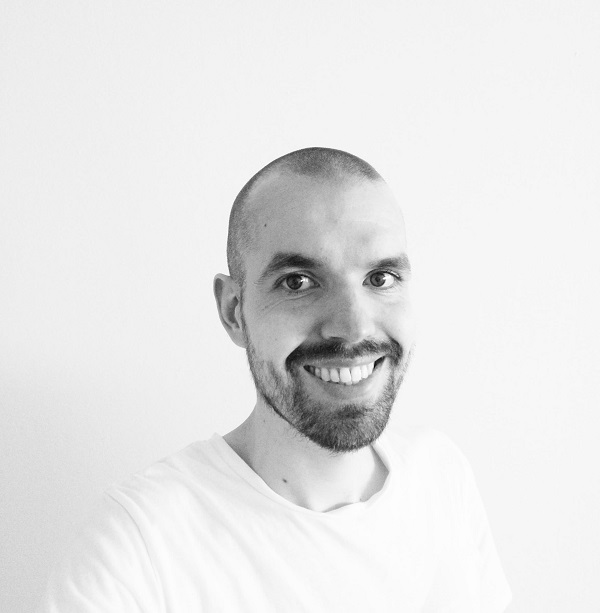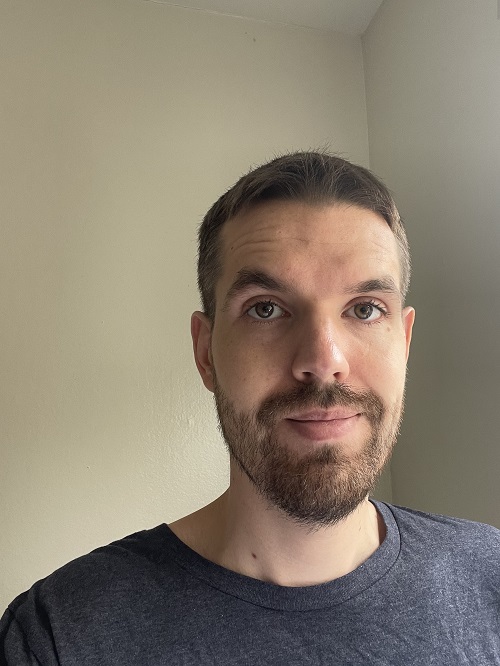
An avid venture capitalist (and lover of wine), Bart Teeuwen decided to base his capstone project on analyzing wineries around the world. The goal was to help VCs like him decide how to make high-yield investments in vineyards. There are several ways to invest in wine: Some investors will buy a stake in a winery, purchase (and, occasionally, run) an entire vineyard, or buy and sell fine wines for profit. Bart found that the success of a winery depends on a number of variables, including production process, climate, geography, and variety.
Before landing an awesome new role in data analytics at Facebook, Bart says he brought up his capstone project in almost every interview during the job search process.
Before Springboard, Bart spent several years working as a business analyst in sales and marketing across a variety of industries—he even ran his own marketing consultancy, Theo and Associates Consulting, in the Bay Area. Over the years, he found that more and more employers required business analysts to have data literacy skills, so he decided to enroll in Springboard’s Data Analytics Career Track in order to remain competitive in the job market and transition to a new industry
“In the Bay Area, there's a high demand for data analysts, and I saw a shift happening where analysts were increasingly required to have data analytics skills,” said Bart. “I didn't want to stay behind, so I decided to pursue it in my free time and see if I can implement it in my next role. I think it's important as we move towards the future that analysts know how to work with data.”
My career path was a mix of just marketing and sales roles. But overall, the guiding thread was data. My background was in marketing & sales where I studied in Amsterdam, The Netherlands, where I am from originally. From there, I transitioned to the US where I completed a master's in international marketing because I wanted to work more with people from all over the world. Since then I've worked in several marketing and analyst roles in a range of industries. Most recently, I worked in the innovation & scaling unit of French insurer AXA where I researched, scouted companies, and developed executive presentations for entities across a range of industries from a VC perspective, including but not limited to insurance, sales, cyber security, mobility, healthcare, and tech.
I didn’t receive any formal training, but I had some superficial encounters with data analytics. I used tools such as CB Insights, PitchBook, and the usual Excel, which crunch the data for you, and I would add the data to presentations and reports. I’d draw insights from that and pass them on to the project manager. That was the reason why I chose to study at Springboard; because I didn't have the opportunity to pick up these data analytics skills in my job, so I wanted to learn them on my own to help propel my career.
I looked at a couple, including Thinkful. What stood out to me about Springboard was the fact that the Data Analytics Career Track was designed together with Microsoft, and the course was a mix of videos, assignments, and other materials. That and the one-on-one mentorship. What won me over was the job guarantee and getting support from a career coach. There were people to assist you in the job search but also a safety net in case you can’t get a job.

Yeah, I was a bit hesitant at first. When the program starts, you have a free trial of seven days, so if you don’t like it, you can still back out. I dived in during those seven days and I found it to be a really good program in terms of knowing what you can expect, such as when assignments are due, how much time you're expected to spend on it.
The instructors were very knowledgeable, and I liked my mentor. He shared little things here and there about his own work and related it to what I was doing in the program. I found it very beneficial to have someone that knows what you're working on bring that real-world perspective.
I spent some time polishing my capstone projects with my mentor because I wanted to use them for my resume and in job interviews. We would also have regular catch-ups to talk about a company that I was interviewing with, or he would tell me about something interesting he was working on that I might benefit from learning about. Just having that personal connection and support during the job search was super helpful.
I would say both. I knew that by taking the Springboard course, I could use it to not only build on my skills as a business analyst but to transition into a data analyst role. Doing so would allow me to a) Make more money; and b) Use my experience to switch industries by promoting my transferable skills. Those were the two reasons I decided to join Springboard.
A business analyst uses information that's already there. They analyze those insights in terms of what they mean for the company or the project. How do these findings affect the operations, strategy, investment decisions, partnerships, and things like that? It’s more of a bird's-eye view.
Being a data analyst means more you're involved in the nitty-gritty details. From finding out what the problem is, to finding the right data sources, cleaning the data, prepping the data, and asking the right questions so you're not wasting your time collecting data that you don't need. Then you bring that full circle to present the story and actionable next steps.

For my capstone project, I did an analysis for venture capitalists who want to invest $10 million in wineries to get an ROI of 20%. So I started by analyzing what makes a wine successful. I searched for a dataset that would tell me how wines are rated by taste testers, how they’re reviewed, and tie that into the flavor of the wine. I also took into account other factors like geography, and climate. So does the climate where a winery is based determine the success of a wine? What types of wines are sold in certain countries?
I used three different datasets, which was really challenging. In the end, I chose to focus on a couple of countries, and I made recommendations to investors on specific wineries in those countries and specific wines that were viewed as more successful.
Through my analysis, I found that wineries in a Mediterranean climate do really well. Even though France has great wines, they're still very expensive, whereas the United States has relatively good wines for good prices.
Yep, so it wasn't about just working with data and throwing out a couple insights. It was more fun for me to actually build a business case around it, with an actual client—in this case, myself—and approach it that way. So I formatted it as a technical presentation that I would make to an executive or someone who doesn't have any information or knowledge about wine at all.
I did not, but I did invest, I guess, in a startup that basically uses artificial intelligence to help people invest in certain wines that they think are going to appreciate over time.
I graduated in February this year, and I spent almost six months applying for jobs. I was very disciplined about maintaining a spreadsheet, recording my interviews. Also making sure I was vigilant about applying to four or more jobs per week, for example, and networking with more than seven people a week. Job searching is a numbers game.
I really appreciated my mentor and my career coach. They would give me a pep talk every now and then to tell me things like, "Look, you're doing really well. Just keep up the good spirits." After a few months, I started getting more and more interviews, which basically meant that my resume and application process was working. And I just had to wait, basically, for the right company in order to get that interview. There were a couple of times where I came really close to the last round, but I didn't get an offer. That was hard to deal with, but it’s good to learn how to deal with rejection.
Honestly, I think most people would dream to work for a FAANG (Facebook, Amazon, Apple, Netflix, Google) company, but since I knew it would be hard to get in at these companies I decided to focus my efforts on smaller startups in niche areas that directly related to my experience. I did apply and ended up having one to two interviews at Google and Apple, but nothing substantial. I had applied to over 200 jobs and networked with so many people, but eventually I found my new role through a networking conversation with someone working at Facebook that was connected to the Springboard referral network as well. After that conversation, I eventually found a role at Facebook that seemed like a great fit, with a focus on diversity and high impact. I asked my new contact to refer me for the role and the rest is history.

I work in the global talent intelligence space. It's basically about gathering and analyzing data on job markets and available talent—where they're located, what skills they have, where they studied—and giving those insights to other teams that are looking to hire people to make sure that they hire the right people and know where to look for competitive talent.
The most valuable part for me was definitely learning these new skills. Also, connecting with my classmates over Slack, hearing about their journey and why they applied to the program. So it was a really great experience to know you're not alone and it's hard for everyone. The biggest experience for me was having a blueprint of the best approaches for job searching, how to network and present yourself. This is definitely something I highly value.
I'm still onboarding. But I’m definitely learning a lot, meeting a lot of people. I’m still ramping up but it's been really good so far.
My advice would be to stay positive; your opportunity will come. You just have to be patient. Companies have different needs. If you’re struggling to land a job it doesn't mean that your profile or your skillset is wrong. It just means that not all companies recognize the value and skill you bring to the table. I also recommend networking and doing informational interviews; that's how I ended up landing my current job. Don't be afraid to reach out and ask others for advice.
Yeah. I just really appreciated the career coaches, my mentor, and the Springboard program. And I'm sure it's constantly being improved—as was done while I was going through the course. Finally, I’d be happy to connect with any students that are starting their job search and share my experience or advice.





